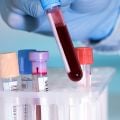No clinical benefit from use of hydroxychloroquine in hospitalised patients with COVID-19
5 June 2020
In a new statement from the Chief Investigators of the Randomised Evaluation of COVid-19 thERapY (RECOVERY) Trial on hydroxychloroquine, Professor Peter Horby and Professor Martin Landray said, ‘In March this year, RECOVERY was established as a randomised clinical trial to test a range of potential drugs for COVID-19, including hydroxycholoroquine.
‘The trial has proceeded at unprecedented speed, enrolling over 11,000 patients from 175 NHS hospitals in the UK. Throughout this time, the independent Data Monitoring Committee has reviewed the emerging data about every two weeks to determine if there is evidence that would be strong enough to affect national and global treatment of COVID-19.
‘On Thursday 4 June, in response to a request from the UK Medicines and Healthcare Products Regulatory Agency (MHRA), the independent Data Monitoring Committee conducted a further review of the data. Last night, the Committee recommended the chief investigators review the unblinded data on the hydroxychloroquine arm of the trial.
‘We have concluded that there is no beneficial effect of hydroxychloroquine in patients hospitalised with COVID-19. We have therefore decided to stop enrolling participants to the hydroxychloroquine arm of the RECOVERY trial with immediate effect. We are now releasing the preliminary results as they have important implications for patient care and public health.
‘A total of 1542 patients were randomised to hydroxychloroquine and compared with 3132 patients randomised to usual care alone. There was no significant difference in the primary endpoint of 28-day mortality (25.7% hydroxychloroquine vs. 23.5% usual care; hazard ratio 1.11 [95% confidence interval 0.98-1.26]; p=0.10). There was also no evidence of beneficial effects on hospital stay duration or other outcomes.
‘These data convincingly rule out any meaningful mortality benefit of hydroxychloroquine in patients hospitalised with COVID-19. Full results will be made available as soon as possible.'
Peter Horby, Professor of Emerging Infectious Diseases and Global Health in the Nuffield Department of Medicine, University of Oxford, and Chief Investigator for the trial, said, ‘Hydroxychloroquine and chloroquine have received a lot of attention and have been used very widely to treat COVID patients despite the absence of any good evidence. The RECOVERY trial has shown that hydroxychloroquine is not an effective treatment in patients hospitalised with COVID-19. Although it is disappointing that this treatment has been shown to be ineffective, it does allow us to focus care and research on more promising drugs.’
Martin Landray, Professor of Medicine and Epidemiology at the Nuffield Department of Population Health, University of Oxford, and Deputy Chief Investigator, said, ‘There has been huge speculation and uncertainty about the role of hydroxychloroquine as a treatment for COVID-19, but an absence of reliable information from large randomised trials. Today’s preliminary results from the RECOVERY trial are quite clear – hydroxychloroquine does not reduce the risk of death among hospitalised patients with this new disease. This result should change medical practice worldwide and demonstrates the importance of large, randomised trials to inform decisions about both the efficacy and the safety of treatments.’
For questions and interview requests, contact:
Oxford University Press Office: [email protected] or phone +44 01865 280528
Oxford Dept of Population Health: Anne Whitehouse, [email protected] or phone +44 (0)7812 165 934
Notes to editors:
Full details of the study protocol and related materials are available at www.recoverytrial.net
A range of potential treatments have been suggested for COVID-19 but it has been unclear whether any of them will turn out to be more effective in improving survival than the usual standard of hospital care which all patients will receive.
The RECOVERY Trial is a large, randomised controlled trial of possible treatments for patients admitted to hospital with COVID-19. Over 11,000 patients have been randomised to the following treatment arms, or no additional treatment:
- Lopinavir-Ritonavir (commonly used to treat HIV)
- Low-dose Dexamethasone (a type of steroid, which is used in a range of conditions typically to reduce inflammation)
- Hydroxychloroquine (related to an anti-malarial drug)
- Azithromycin (a commonly used antibiotic)
- Tocilizumab (an anti-inflammatory treatment given by injection)
- Convalescent plasma (collected from donors who have recovered from COVID-19 and contains antibodies against the SARS-CoV-2 virus).
For this particular analysis, follow-up is complete for just over 80% of participants. The lower bound of the confidence interval rules out any meaningful benefit.
The RECOVERY trial is conducted by the registered clinical trials units with the Nuffield Department of Population Health in partnership with the Nuffield Department of Medicine. The trial is supported by a grant to the University of Oxford from UK Research and Innovation/National Institute for Health Research (NIHR) and by core funding provided by NIHR Oxford Biomedical Research Centre, Wellcome, the Bill and Melinda Gates Foundation, the Department for International Development, Health Data Research UK, the Medical Research Council Population Health Research Unit, and NIHR Clinical Trials Unit Support Funding.
The RECOVERY trial involves many thousands of doctors, nurses, pharmacists, and research administrators at 175 NHS Trusts across the whole of the UK, supported by staff at the NIHR Clinical Research Network, Public Health England, Department of Health & Social Care, and the NHS in England, Scotland, Wales and Northern Ireland.
 Wellcome Discovery Award of £5m to fund pioneering research to combat deadly diarrhoea
Wellcome Discovery Award of £5m to fund pioneering research to combat deadly diarrhoea
 The Global Health Network reaches 1 million members
The Global Health Network reaches 1 million members
 First patients scanned in new study investigating traumatic brain injury in young athletes
First patients scanned in new study investigating traumatic brain injury in young athletes
 BMI, blood pressure and physical activity levels in childhood linked to brain differences
BMI, blood pressure and physical activity levels in childhood linked to brain differences
 Oxford researchers develop blood test to enable early detection of multiple cancers
Oxford researchers develop blood test to enable early detection of multiple cancers